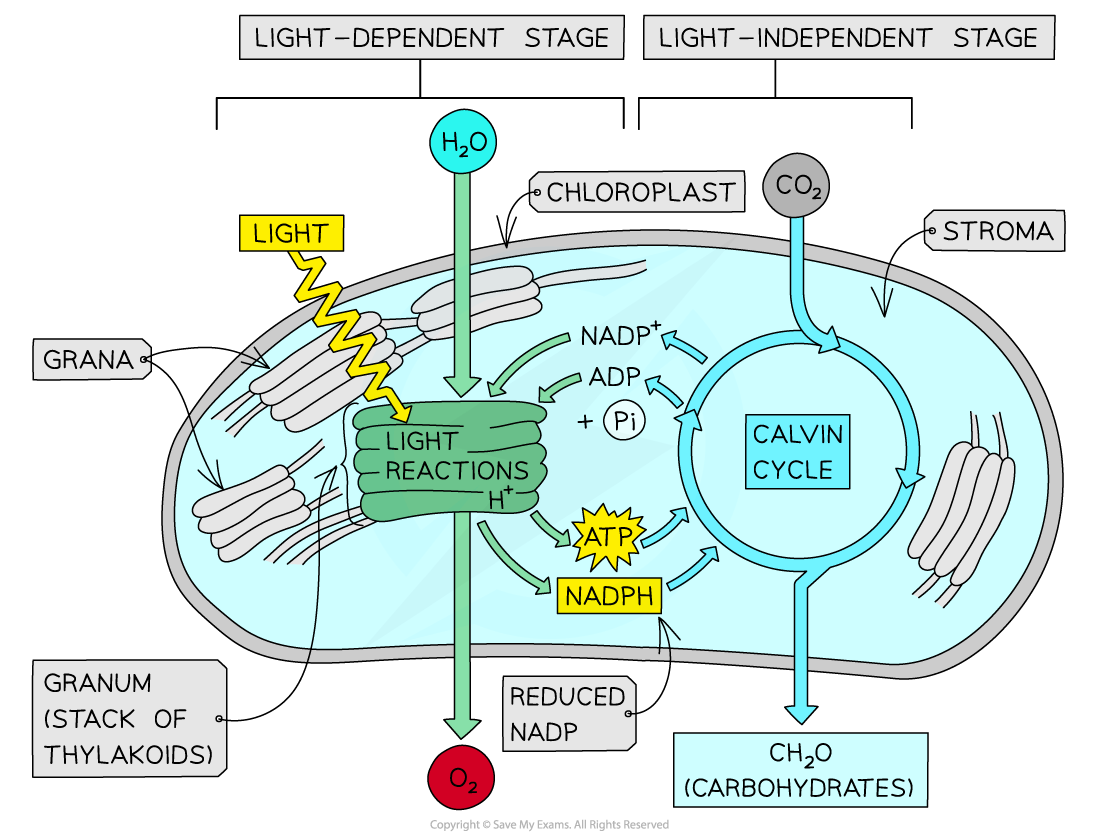Stages of Photosynthesis (Cambridge (CIE) A Level Biology): Revision Note
Exam code: 9700
The two stages of photosynthesis
Photosynthesis occurs in two distinct stages:
The light-dependent stage, which takes place in the thylakoids
The light-independent stage, which takes place in the stroma
Summary of the light-dependent stage
Reduced NADP is produced when hydrogen ions combine with the carrier molecule NADP using electrons from the photolysis of water
ATP is produced in a process called photophosphorylation
Photophosphorylation uses the proton (H+) gradient generated by the photolysis of water
Energy from ATP and hydrogen from reduced NADP are passed from the light-dependent stage to the light-independent stage of photosynthesis
Summary of the light-independent stage
The energy and hydrogen (from the light-dependent stage) are used
This takes place in reactions known collectively as the Calvin cycle
Complex organic molecules are produced, including (but not limited to) carbohydrates, such as:
Starch (for storage)
Sucrose (for translocation around the plant)
Cellulose (for making cell walls)

Examiner Tips and Tricks
Remember, the whole purpose of the light-dependent reactions is to produce ATP and reduced NADP, which are then supplied into the stroma and used to complete the process of photosynthesis through the light-independent reactions.

Unlock more, it's free!
Was this revision note helpful?
